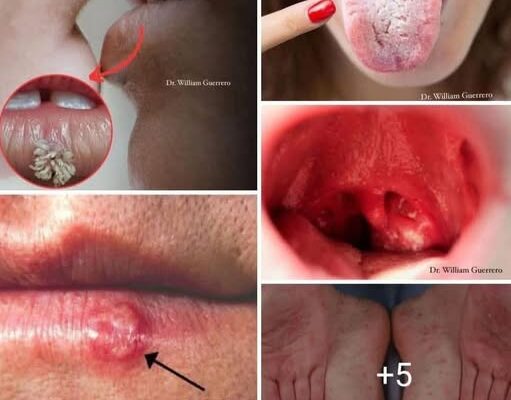Understanding Mouth Cancer: A Critical Health Alert
Mouth cancer, also known as oral cancer, is a serious form of cancer that affects the mouth, throat, and head region. It most commonly develops in individuals over 40, with men being more susceptible than women. This year alone, India has recorded a staggering 77,003 new cases of mouth cancer, with 52,067 lives lost. Early detection dramatically improves survival rates, especially before the cancer spreads to the lymph nodes in the neck.
Types of Mouth Cancer (Oral Cancer)
Mouth cancer can affect various parts of the oral cavity, including:
- Lips
- Tongue
- Inner cheeks
- Gums
- Lower part of the mouth
If you notice any unusual symptoms, it’s crucial to consult your dentist without delay. Experts recommend regular oral examinations—at least twice a year—to catch any warning signs early. For specialized care, you can consult Mouth Cancer Specialist Dr. Sajjan Rajpurohit.
Warning Signs and Symptoms of Mouth Cancer
In its early stages, mouth cancer often shows no symptoms, making regular dental checkups vital—especially for smokers and daily alcohol consumers. Here are some key symptoms to watch for:
- Persistent, non-healing sores or blisters on the lips or inside the mouth
- Swelling or lumps in the mouth or neck
- Unexplained bleeding from the mouth
- Loose teeth without obvious cause
- Mouth pain or difficulty swallowing
- Sudden weight loss
- Numbness or tingling in the lips, face, neck, or chin
- Red or white patches inside the mouth or on the lips
- Persistent sore throat or earache
- Dry mouth, jaw stiffness, or tongue pain
While these symptoms do not always mean cancer, ignoring them can be dangerous. If any symptoms persist despite treatment, or if multiple symptoms appear simultaneously, seek medical advice immediately.
What Causes Mouth Cancer?
Several lifestyle factors increase the risk of developing mouth cancer:
- Smoking: Cigarettes, cigars, or pipe smoking is the leading cause.
- Tobacco Use: Chewing or any form of tobacco significantly raises the risk.
- Excessive Alcohol Consumption: Heavy drinking is a major contributing factor.
Stages of Mouth Cancer
Understanding the stage of cancer helps determine treatment and prognosis:
- Stage 1: Tumor less than 1 inch, no lymph node involvement.
- Stage 2: Tumor 1 to 2 inches, no lymph node involvement.
- Stage 3: Tumor about 2 inches or smaller with spread to nearby lymph nodes.
- Stage 4: Advanced cancer spreading beyond the mouth to surrounding tissues, lymph nodes, or other parts of the body.
Treatment Options for Mouth Cancer
Treatment depends on the stage and spread of cancer. Common methods include:
- Surgery: Tumor removal followed by reconstruction of the affected mouth area. Techniques like pedicle or free flap reconstruction help restore function and appearance.
- Radiation Therapy: Uses high-energy rays to target cancer cells while sparing healthy tissue. Methods include External Beam Radiation Therapy (EBRT) and brachytherapy.
- Chemotherapy: Often combined with radiation to destroy cancer cells throughout the body using powerful drugs.
- Targeted Drug Therapy: Focuses specifically on cancer cells to block their growth, often used alongside chemotherapy or radiation.
Important Facts to Remember
- Tobacco use accounts for nearly 80% of all mouth cancer cases.
- The average age for mouth cancer diagnosis is around 50 years.
- Men are more likely to develop mouth cancer than women, and risk increases with age.
- Early diagnosis can boost survival rates to 82%, while late-stage detection reduces survival to about 27%.
- Regular dental visits and oral hygiene are your best defenses against mouth cancer.
Final Words
Oral health is often overlooked, but it is essential for preventing severe diseases like mouth cancer. Don’t delay if you notice any symptoms. Visit your dentist regularly and maintain good oral care habits. Early action saves lives.



